By Ali Farkhan Tsani, Senior Editor of MINA News Agency
Interpreting the Islamic new year, 1 Muharram 1446 Hijri, reminds us of a spectacular story in the history of the struggle of Islam, namely the event of the Hijrah (migration) of the Prophet Muhammad Shallallahu ‘Alaihi Wasallam and his companions from Mecca to Medina in the year 1 Hijri, coinciding with the year 622 CE.
There are certainly many meanings and valuable lessons that we can take from the migration of the Prophet, including:
First, Hijrah marks a monumental milestone in the struggle of da’wah (proselytizing) and the struggle of Islam and Muslims.
Also Read: Prophet Sulaiman Alaihi Salam, the Greatest Muslim King of All Time
The Hijrah phase is the rise of Islam, which was initially filled with an unconducive atmosphere, full of fear and intimidation, in Mecca towards a prospective atmosphere, full of brotherhood and progress in Islamic da’wah in Medina, and continues to develop throughout the world.
Ibnu Qayyim Al-Jauziyyah referred to the Prophet’s migration as “al-hijrah al-haqiqiyyah” (the true migration). His rationale was that the physical migration reflected the spiritual migration itself. These dual meanings of migration are encapsulated in the migration of the Prophet Muhammad (peace be upon him) and his companions to Medina.
Physically, the Prophet and his companions had to travel on foot from Mecca to Medina, covering approximately 450 kilometers across the desert.
Spiritually, they migrated to safeguard the mission of Islam.
Also Read: Imaam Yakhsyallah Mansur: Surah At-Tin Indicates the Command to Liberate Al-Aqsa
In propagating the call to Allah’s path, the messengers of Allah, including Prophet Muhammad (peace be upon him), dynamically migrated from one place to another.
One example is Prophet Ibrahim (peace be upon him), renowned in history for his life’s journey filled with trials and challenges. He had to migrate from his hometown, the city of Ur in Babylonia (present-day Iraq), to the land of Canaan (present-day Palestine).
Allah mentions in the Quran:
“Then Lut believed in him [Abraham’s message]. And [Abraham] said, ‘Indeed, I will emigrate to [the service of] my Lord. Indeed, He is the Exalted in Might, the Wise.'” (Quran, Al-Ankabut [29]: 26).
Also Read: Imaam Yakhsyallah: Nurture Love for the Prophet, One Will Be with Whom One Loves
Furthermore, Prophet Ibrahim (peace be upon him) also migrated several times, from Palestine to Egypt and back, and then from Palestine to Mecca, which later became part of the Hajj rituals. He returned to Palestine and then back to Mecca.
Prophet Musa (peace be upon him) also received Allah’s command to migrate from oppression in Pharaoh’s land of Egypt to the border of Palestine, passing through Jordan.
Allah mentions:
“And there came a man running from the farthest part of the city. He said, ‘O Moses, indeed the eminent ones are conferring over you [intending] to kill you, so leave [the city]; indeed, I am to you of the sincere advisors.'” (Quran, Al-Qasas [28]: 20).
Also Read: Friday Sermon: Emulating the Firmness of the Prophet in Struggle
“So he left it, fearful and anticipating [apprehension]. He said, ‘My Lord, save me from the wrongdoing people.'” (Quran, Al-Qasas [28]: 21).
Thus, migration is a journey to build civilization based on the spirit of loyalty, faith, and obedience, ultimately leading to something better under Allah’s approval.
People are also required to migrate from the ignorance system (jahiliyah) to the complete Islamic system (kaffah). This includes education, economy, social structure, leadership, and others, aiming for perfection based on the Quran and Sunnah.
Migration is also from what Allah has forbidden to what He has commanded, from wasteful and corrupt actions to righteous deeds that are more beneficial.
Also Read: Imaam Yakhsyallah: Muslims Unity as Key to Victory of Islam
As the Prophet Muhammad (peace be upon him) said:
“A Muslim is one from whose tongue and hands other Muslims are safe. And a Muhajir (emigrant) is one who abandons what Allah has forbidden.” (Narrated by Bukhari and Muslim).
Migration also signifies the spirit of optimistic struggle.
The Prophet Muhammad (peace be upon him) and his companions faced sadness and fear by migrating, leaving behind their homeland, family, and beloved possessions. However, they loved Allah, His Messenger, and striving in His cause more than all worldly attractions.
Also Read: Friday Sermon: Prophet Muhammad Is Not a Political Figure
They truly enjoyed practicing the verse:
“Say, ‘If your fathers, your sons, your brothers, your wives, your relatives, wealth which you have obtained, commerce wherein you fear decline, and dwellings with which you are pleased are more beloved to you than Allah and His Messenger and jihad in His cause, then wait until Allah executes His command. And Allah does not guide the defiantly disobedient people.'” (Quran, At-Tawbah [9]: 24).
Thirdly, interpreting migration includes the meaning of the spirit of Islamic brotherhood, ukhuwwah Islamiyyah.
This is exemplified by the Prophet Muhammad (peace be upon him) when he established brotherhood between the Muhajirin (emigrants) and the Ansar (helpers) in a structured community (jama’ah) based on piety towards Allah.
Also Read: Without Knowledge, Congregation Is Merely a Crowd Without Direction
Therefore, when the Prophet Muhammad (peace be upon him) migrated from Mecca to Medina, one of his first acts after building the mosque as the central point for Muslim struggle was to establish brotherhood between the immigrants (Muhajirin) and the native inhabitants (Ansar).
The purpose of establishing this brotherhood was to: (1) eliminate any sense of alienation among the Muhajirin in their new city of Medina, (2) foster a sense of brotherhood among them in the religion of Allah, (3) encourage mutual support where the strong help the weak, the capable support those in need, and so on.
The spirit of brotherhood among believers is emphasized in the Quran:
“Indeed, the believers are brothers. So make settlement between your brothers. And fear Allah that you may receive mercy.” (Quran, Al-Hujurat [49]: 10).
Also Read: Friday Sermon: Grateful for Indonesia’s Independence by Supporting Palestine’s Freedom
The essence of brotherhood in communal life is highlighted as Allah states:
“And hold firmly to the rope of Allah all together and do not become divided. And remember the favor of Allah upon you – when you were enemies and He brought your hearts together and you became, by His favor, brothers. And you were on the edge of a pit of the Fire, and He saved you from it. Thus does Allah make clear to you His verses that you may be guided.” (Quran, Ali Imran [3]: 103).
One of the peaks of brotherhood today is to unite our hearts, souls, minds, and bodies with the struggle of our brothers in the land of adversity, Baitul Maqdis (Jerusalem), Palestine.
With this spirit of brotherhood, let us contribute what we can to the struggle of the Palestinian people in achieving their independence from Zionist occupation. Thus, our brothers and sisters can be liberated from daily hardships, have accessible education, and particularly, freely worship in Al-Aqsa Mosque without hindrance.
Also Read: The Bestial Nature of Netanyahu
Let us be part of liberating Baitul Maqdis, as depicted by the Prophet Muhammad (peace be upon him) in his saying:
“A group of my community will remain steadfast on the truth, triumphing over their enemies, and those who oppose them will not harm them until the command of Allah comes. They are like that.” They asked, “O Messenger of Allah, where are they?” He said, “In and around Jerusalem and its surroundings.” (Ahmad).
Reflecting on this hadith, Ibn Taymiyyah stated it is strong and repeated in argument, extensively cited among Hadith scholars. It warns that the Muslim community will divide and differ on matters of religion, but there will always be a group that remains safe and successful until the Day of Judgment, adhering to the commands of Allah and His Messenger.
At-Tabari mentioned that this group, following the commands of Allah and His Messenger, may not always be in Sham (Syria) or Jerusalem. They could be elsewhere at times, such as in regions like Sham, Hijaz, Egypt, Iraq, or Yemen, all adhering to the truth. These scholars had works of literature that served as guidance in following the Sunnah.
Also Read: Why A Mother’s Literacy Matters: Lessons from Rose Kennedy
This includes those who fight to defend Al-Aqsa Mosque, Baitul Maqdis, and all of Palestine, as those around Jerusalem. Similarly, when the Caliphate was there, the Islamic community around Jerusalem and neighboring lands did not immediately assist Palestine, or even refused. Thus, there is a widespread Islamic group that continues to defend it, even though not physically present around Baitul Maqdis.
Similarly, during the Caliphate, when the Islamic community around Baitul Maqdis and its surroundings no longer applied it, there were Islamic groups that continued to apply it and fought for the law until they successfully suppressed their enemies.
Thus, a glimmer of hope with interpreting the presence of the Islamic New Year 1446 Hijriyah is to increase optimism in the struggle to build a civilized humanity, family, society, nation, and world based on the values of Islamic brotherhood, rahmatan lil ‘alamin. Aamiin.
May Allah bless us and you in the great Quran, benefit me and you in what is in it from verses and wise reminders, and accept from us and you His recitation. He is the All-Hearing, the All-Knowing. And I say this saying, so ask forgiveness of Allah the Almighty, indeed, He is the Forgiving, the Merciful. (T/RE1/P2)
Mi’raj News Agency (MINA)






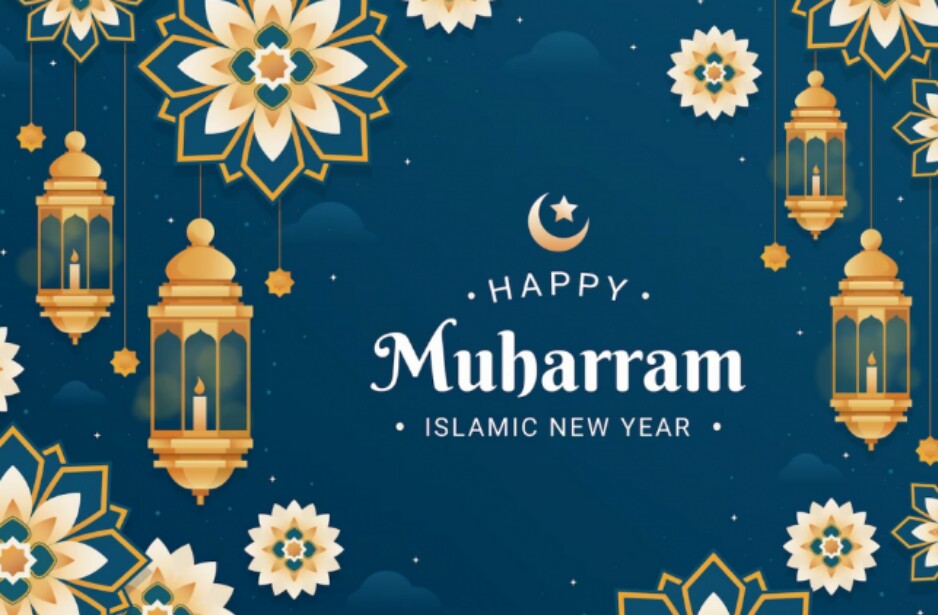

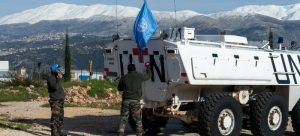
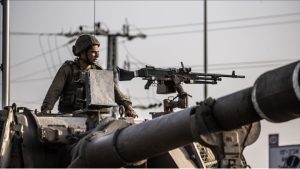




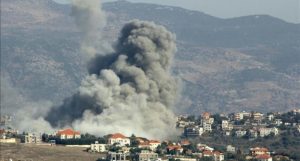

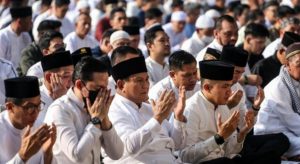


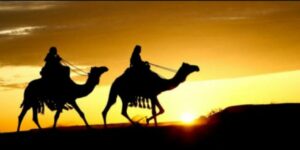















 Mina Indonesia
Mina Indonesia Mina Arabic
Mina Arabic